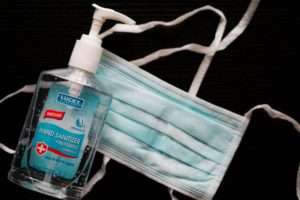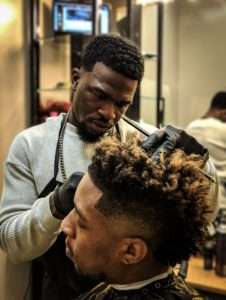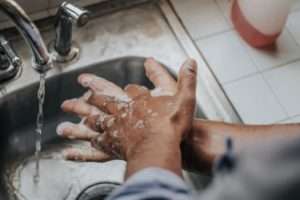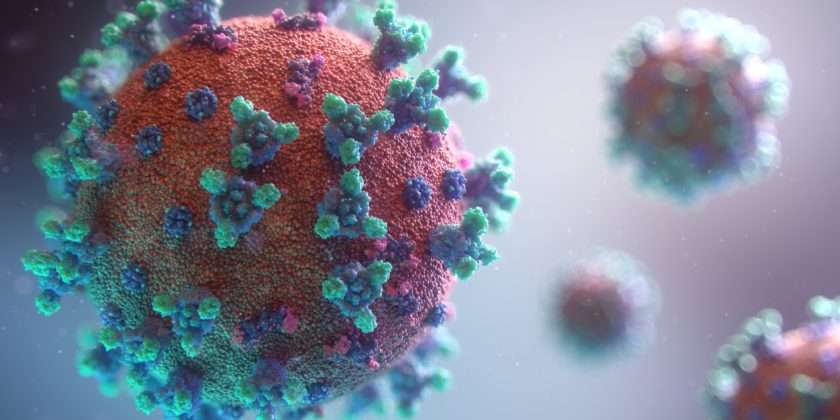There’s misinformation everywhere about COVID-19. Jay Harold wanted to give you some of the latest thinking from one of the most trusted sources in medicine today. the CDC COVID Data Tracker says that the United States has over 48 million cases and 778,489 deaths as of November 30, 20211, @2:41 p.m. ET. This post ”Omicron variant News from the CDC2” seeks to provide current and relevant information from a trusted source. This is the CDC Statement on B.1.1.529 (Omicron variant) dated November 26, 2021.
On November 26, 2021, the World Health Organization (WHO) classified a new variant, B.1.1.529, as a Variant of Concern and has named it Omicron. No cases of this variant have been identified in the U.S. to date. CDC is following the details of this new variant, first reported to the WHO by South Africa. We are grateful to the South African government and its scientists who have openly communicated with the global scientific community and continue to share information about this variant with the U.S. Department of Health and Human Services and CDC. We are working with other U.S. and global public health and industry partners to learn more about this variant, as we continue to monitor its path.
CDC is continuously monitoring variants and the U.S. variant surveillance system has reliably detected new variants in this country. We expect Omicron to be identified quickly if it emerges in the U.S.
We know what it takes to prevent the spread of COVID-19. CDC recommends people follow prevention strategies such as wearing a mask in public indoor settings in areas of substantial or high community transmission, washing your hands frequently, and physically distancing from others. CDC also recommends that everyone 5 years and older protect themselves from COVID-19 by getting fully vaccinated. CDC encourages a COVID-19 vaccine booster dose for those who are eligible.
Travelers to the U.S. should continue to follow CDC recommendations for traveling.
CDC will provide updates as more information becomes available.
How to Protect Yourself & Others3
Jay Harold received his booster dose of the Moderna COVID19 vaccine on November 3, 2021, with no side effects.
Some members in your family may need to continue to take steps to protect themselves from COVID-19, including
- Anyone not fully vaccinated, including children under 5 years who are not eligible for COVID-19 vaccines.
- People with weakened immune systems or underlying medical conditions.

Get Vaccinated
-
- Authorized COVID-19 vaccines can help protect you from COVID-19.
- You should get a COVID-19 vaccine as soon as you can.
- Once you are fully vaccinated, you may be able to start doing some things that you had stopped doing because of the pandemic.
Wear a mask
- Everyone 2 years or older who is not fully vaccinated should wear a mask in indoor public places.
- In general, you do not need to wear a mask in outdoor settings.
- In areas with high numbers of COVID-19 cases, consider wearing a mask in crowded outdoor settings and for activities with close contact with others who are not fully vaccinated.
- People who have a condition or are taking medications that weaken their immune system may not be fully protected even if they are fully vaccinated. They should continue to take all precautions recommended for unvaccinated people, including wearing a well-fitted mask until advised otherwise by their healthcare provider.
- If you are fully vaccinated, to maximize protection and prevent possibly spreading it to others, wear a mask indoors in public if you are in an area of substantial or high transmission.
- Learn about When You’ve Been Fully Vaccinated.

Wearing a mask over your nose and mouth is required on planes, buses, trains, and other forms of public transportation traveling into, within, or out of the United States and while indoors at U.S. transportation hubs such as airports and stations. Travelers are not required to wear a mask in outdoor areas of a conveyance (like on open deck areas of a ferry or the uncovered top deck of a bus).
Stay 6 feet away from others
- Inside your home
- Avoid close contact with people who are sick.
- If possible, maintain 6 feet between the person who is sick and other household members.
- Outside your home
- Remember that some people without symptoms may be able to spread the virus.
- Stay at least 6 feet (about 2 arm lengths) from other people especially if you are at higher risk of getting very sick.
Avoid crowds and poorly ventilated spaces

- Being in crowded places like restaurants, bars, fitness centers, or movie theaters puts you at higher risk for COVID-19.
- Avoid indoor spaces that do not offer fresh air from the outdoors as much as possible.
- If indoors, bring in fresh air by opening windows and doors, if possible.
Test to prevent spread to others
- Testing can give you information about your risk of spreading COVID-19.
- You can choose from many different types of tests.
- Regardless of the test type, you select, a positive test result means that you have an infection and should isolate and inform your close contacts to avoid spreading the disease to others.
- Over-the-counter self-tests can be used at home or anywhere, are easy to use, and produce rapid results. Anyone can use self-tests, regardless of vaccination status or whether they have symptoms or not.
- Consider using a self-test before joining indoor gatherings with others who are not in your household.
- A positive self-test result means that you have an infection and should avoid indoor gatherings to reduce the risk of spreading the disease to someone else.
- A negative self-test result means that you may not have an infection. Repeating the test with at least 24 hours between tests will increase the confidence that you are not infected.
- Ask your healthcare provider if you need help interpreting your test results.
Wash your hands often
- Wash your hands often with soap and water for at least 20 seconds especially after you have been in a public place, or after blowing your nose, coughing, or sneezing.
 It’s especially important to wash:
It’s especially important to wash:
- Before eating or preparing food
- Before touching your face
- After using the restroom
- After leaving a public place
- After blowing your nose, coughing, or sneezing
- After handling your mask
- After changing a diaper
- After caring for someone sick
- After touching animals or pets
- If soap and water are not readily available, use a hand sanitizer that contains at least 60% alcohol. Cover all surfaces of your hands and rub them together until they feel dry.
- Avoid touching your eyes, nose, and mouth with unwashed hands.
Cover coughs and sneezes

- If you are wearing a mask: You can cough or sneeze into your mask. Put on a new, clean mask as soon as possible and wash your hands.
- If you are not wearing a mask:
- Always cover your mouth and nose with a tissue when you cough or sneeze, or use the inside of your elbow and do not spit.
- Throw used tissues in the trash.
- Immediately wash your hands with soap and water for at least 20 seconds. If soap and water are not readily available, clean your hands with a hand sanitizer that contains at least 60% alcohol.
Clean and disinfect
- Clean high-touch surfaces daily. This includes tables, doorknobs, light switches, countertops, handles, desks, phones, keyboards, toilets, faucets, and sinks.
- If someone is sick or has tested positive for COVID-19, disinfect frequently touched surfaces.
- Use a household disinfectant product from EPA’s List N: Disinfectants for Coronavirus (COVID-19)external icon according to manufacturer’s labeled directions.
- If surfaces are dirty, clean them using detergent or soap and water prior to disinfection.
Monitor your health daily
- Be alert for symptoms:
- Watch for fever, cough, shortness of breath, or other symptoms of COVID-19.
- Take your temperature if symptoms develop.
- Don’t take your temperature within 30 minutes of exercising or after taking medications that could lower your temperature, like acetaminophen.

OLYMPUS DIGITAL CAMERA
- Follow CDC guidance if symptoms develop.
- Monitoring symptoms is especially important if you are running errands, going into the office or workplace, and in settings where it may be difficult to keep a physical distance of 6 feet.
Jay Harold hopes you enjoyed this post, “Omicron variant News from the CDC” Click this link to get free Health and Wealth information to improve your life. Please share it and read more about Jay Harold here. Please take this advice from Muhammad Ali and give it back to others. “Service to others is the rent you pay for your room here on earth.”




